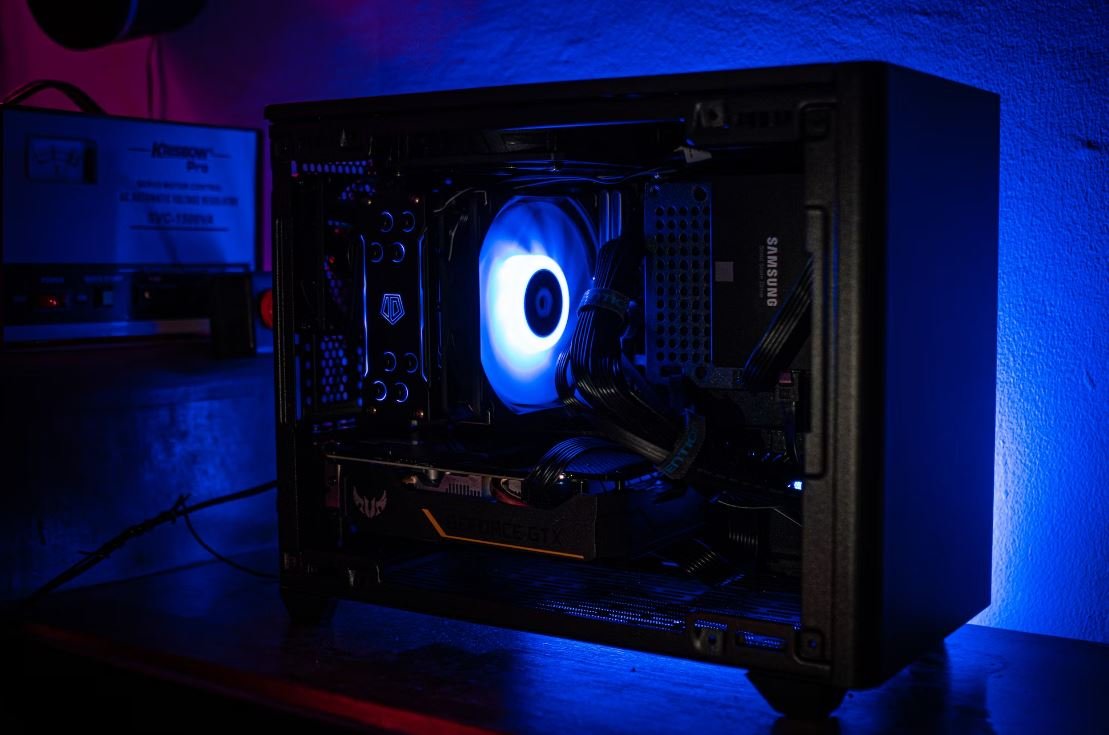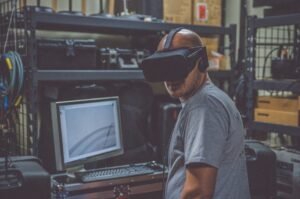Artificial Intelligence vs Program
Artificial Intelligence (AI) and traditional programs are two essential elements in the world of technology and computing. While both serve distinct purposes, they differ significantly in their capabilities and functionality. Understanding the differences and similarities between AI and traditional programs is crucial in harnessing the power of these tools effectively.
Key Takeaways:
- Artificial Intelligence (AI) and traditional programs have different capabilities and functionality.
- AI can learn and adapt from experiences, while traditional programs follow predefined instructions.
- Traditional programs offer more precise control, while AI can handle complex and ambiguous situations.
- AI has the potential to revolutionize various industries.
Artificial Intelligence: Learning and Adaptation
AI refers to the development of computer systems that can perform tasks with human-like intelligence, learn from experiences, and adapt to different scenarios. Unlike traditional programs, which follow a predefined set of instructions, AI systems can improve and optimize their performance over time by analyzing data and patterns. AI can recognize images, understand natural language, and make decisions based on complex scenarios. *AI has the ability to learn from vast amounts of data and continuously improve its accuracy and efficiency.*
Traditional Programs: Fixed Instructions and Control
Traditional programs, also known as software applications, are sets of instructions written by human programmers to perform specific tasks. These programs execute in a predefined manner and follow a sequence of steps to accomplish their goals. Unlike AI, traditional programs lack the ability to learn from experiences or adapt to new situations. They offer precise control over the execution and outcomes, as they operate based on predetermined logic and algorithms. *Traditional programs are designed with a clear set of instructions that they execute accurately and efficiently.*
Differences in Capabilities
The key distinction between AI and traditional programs lies in their capabilities. AI has the potential to handle complex and ambiguous situations which traditional programs may struggle with due to their rigid nature. AI can process and interpret unstructured data such as images or natural language, enabling it to operate in real-world scenarios where traditional programs fall short. *AI’s ability to handle diverse and unstructured data sets it apart from traditional programs.*
Applications of Artificial Intelligence
AI has revolutionized various industries by enabling machines to interpret and analyze data, imitate human decision-making, and perform tasks that traditionally required human intervention. Some notable applications of AI include:
- Self-driving cars: AI algorithms enable autonomous vehicles to navigate, sense their environment, and make decisions on the road.
- Virtual assistants: AI-powered virtual assistants like Siri, Alexa, and Google Assistant can understand and respond to human voice commands.
- Medical diagnosis: AI systems can analyze medical data and assist in diagnosing diseases, identifying patterns, and recommending treatment options.
*AI has transformed several industries by automating tasks, improving efficiency, and enhancing decision-making processes.*
Comparison between AI and Traditional Programs
| AI | Traditional Programs |
|---|---|
| AI systems can learn and adapt from experiences. | Traditional programs follow predefined instructions. |
| AI can handle complex and ambiguous situations. | Traditional programs offer precise control over execution. |
| AI excels in processing and interpreting unstructured data. | Traditional programs rely on structured data for operation. |
Future Potential of AI
As AI continues to advance, its potential impact on various industries cannot be underestimated. AI-powered systems have the ability to transform the way we live and work. From autonomous vehicles to personalized medicine, AI has the potential to revolutionize the world as we know it. However, it is important to approach AI development ethically and responsibly to ensure the benefits outweigh the risks. *The future holds immense possibilities for AI, with endless opportunities for innovation and advancement across numerous sectors.*
Conclusion
Artificial Intelligence (AI) and traditional programs have distinct roles and capabilities in the field of technology. While traditional programs excel in precision and control, AI surpasses in handling complex scenarios and learning from experiences. AI’s potential to revolutionize various industries makes it an exciting tool for innovation and advancement. Understanding the differences and potential applications of AI and traditional programs equips us to leverage their strengths effectively.

Common Misconceptions
Misconception 1: Artificial Intelligence can fully replace human intelligence
- AI is designed to assist and enhance human capabilities, not to replicate human thinking entirely.
- AI algorithms lack creativity, intuition, and common sense that humans possess.
- Human judgement and ethics are crucial in decision-making processes, which AI cannot emulate.
Misconception 2: All AI programs are self-aware
- Most AI systems are developed for specific tasks or domains and lack consciousness or self-awareness.
- Sentience or self-awareness requires complex cognitive processes not currently achievable by AI.
- The goal of AI is to mimic human intelligence, not necessarily to create consciousness.
Misconception 3: AI is a threat to human jobs
- While AI technology can automate certain tasks, it also creates new job opportunities.
- AI is more effective in handling repetitive and data-driven tasks, allowing humans to focus on creative and complex problem-solving.
- Jobs involving empathy, creativity, social interactions, and leadership are less likely to be replaced by AI.
Misconception 4: AI is infallible and makes no mistakes
- AI systems are designed by humans, making them prone to errors and biases.
- Data used to train AI models can be biased and lead to discriminatory outcomes.
- AI algorithms require constant monitoring and human intervention to ensure correctness and fairness.
Misconception 5: AI poses immediate existential threats to humanity
- AI development is still in its early stages, and it will take significant advancements to reach the level portrayed in movies or dystopian scenarios.
- There are ongoing discussions around the ethical and safety aspects of AI to prevent any potential harm.
- AI development is primarily focused on solving real-world problems and improving the quality of life.

Artificial Intelligence Usage in Daily Life
Artificial Intelligence has become an integral part of our daily lives, impacting various sectors ranging from healthcare to entertainment. The table below showcases some practical applications of AI in our everyday activities.
Comparison of AI and Traditional Program
Artificial Intelligence and traditional programming differ significantly in their approaches and capabilities. The following table highlights some key distinctions between these two methods.
Top AI-Powered Virtual Assistants
The rise of AI has led to the development of virtual assistants, enhancing productivity and convenience. The table below presents some popular AI-powered virtual assistants.
Machine Learning Algorithms Comparison
Machine Learning algorithms play a crucial role in training AI systems by modeling patterns in datasets. The table below compares different ML algorithms based on their characteristics.
Benefits of AI in Healthcare
The healthcare industry has witnessed numerous advancements through AI applications. The table below showcases the benefits of AI in healthcare and patient outcomes.
Artificial Intelligence in Gaming
The gaming industry has embraced AI to deliver more immersive and engaging experiences. The table below outlines how AI is revolutionizing the gaming landscape.
The Impact of AI on Job Market
AI’s increasing capabilities have led to concerns regarding its potential impact on jobs. The table below depicts how AI adoption influences employment trends.
Robotic Process Automation vs Artificial Intelligence
Robotic Process Automation (RPA) and Artificial Intelligence have distinct roles in streamlining workflows. The table below highlights the differences between RPA and AI.
AI’s Role in Fraud Detection
AI’s ability to analyze vast amounts of data in real-time has proven invaluable in detecting and preventing fraudulent activities. The table below demonstrates AI’s impact on fraud detection.
The Future Applications of AI
As AI continues to evolve, its potential applications in various domains expand. The table below presents a glimpse of the potential future applications of AI.
Artificial Intelligence has transformed the way we interact with technology, personalizing our experiences and improving efficiency. From virtual assistants to fraud detection systems, AI’s capabilities are reshaping industries. While traditional programming has its place, AI offers the ability to adapt and learn from data, leading to more intelligent decision-making. With ongoing advancements, the future holds countless opportunities for AI to revolutionize various aspects of our lives and bring about substantial advancements.
Frequently Asked Questions
Artificial Intelligence vs Program Title
What is Artificial Intelligence?
Artificial Intelligence (AI) refers to the simulation of human intelligence in machines that are programmed to think and learn like humans. It encompasses a wide range of technologies, including machine learning, natural language processing, computer vision, and robotics.
What is the Program Title?
Program Title is a program developed to address specific tasks or objectives. It can be a computer program, software application, or any other executable code that serves a particular purpose.
How does Artificial Intelligence differ from the Program Title?
Artificial Intelligence focuses on developing intelligent systems that can perform tasks with human-like intelligence. It involves creating algorithms and models to enable machines to learn from data and make decisions. On the other hand, Program Title is a specific program designed to achieve a particular goal or solve a specific problem. While AI can be used in the development of Program Title, it is not a necessary component.
What are some examples of Artificial Intelligence applications?
Some examples of AI applications include virtual assistants like Siri and Alexa, autonomous vehicles, fraud detection systems, image and speech recognition systems, recommendation engines, and chatbots.
How is Artificial Intelligence used in the Program Title?
AI can be incorporated into the Program Title to enhance its capabilities. For example, it can be used to automate tasks, improve decision-making processes, analyze data, or enable natural language processing. The specific integration of AI depends on the requirements and goals of the Program Title.
What are the benefits of using Artificial Intelligence in the Program Title?
Integrating AI into the Program Title can bring several benefits such as increased efficiency, improved accuracy, enhanced user experience, automation of repetitive tasks, better decision-making, and the ability to handle complex data analysis.
Are there any risks or challenges associated with using Artificial Intelligence in the Program Title?
While AI offers numerous advantages, there are also risks and challenges. These may include potential biases in algorithms, data privacy concerns, technical limitations, ethical considerations, and the need for continuous updates and maintenance to keep up with advancements in AI technology.
How can one learn more about Artificial Intelligence and its application in Program Title?
To learn more about Artificial Intelligence and its application in Program Title, one can explore online resources such as articles, tutorials, and courses. Academic institutions and online learning platforms often offer specialized courses and programs in AI-related subjects.
Can Artificial Intelligence replace the need for Program Title development?
While AI can automate certain aspects of Program Title development and improve its functionality, it cannot entirely replace the need for human involvement in program development. Human expertise and creativity are still crucial for designing and implementing effective solutions tailored to specific requirements.
What is the future of Artificial Intelligence in Program Title development?
The future of AI in Program Title development looks promising. As AI technology continues to advance, it is expected to play a larger role in enhancing program capabilities, enabling more personalized user experiences, automating complex tasks, and improving overall efficiency.





